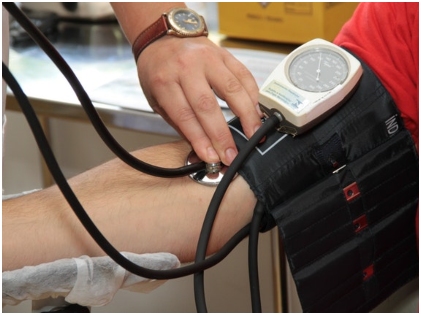An individual battling atrial fibrillation or A-fib has an irregular heartbeat pattern. This situation might occur permanently or on certain occasions. And it could lead to cardiac issues like clotting of blood and stroke. If this alarms you, don’t worry. Read on to know all about A-fib in detail. However, the prime question here is whether you are eligible for Medicare coverage in case of atrial fibrillation or not. You will get to know the details regarding Medicare coverage, the treatment options, and the associated costs from the points below. Surf through them for everything you wanted to know about A-fib.
What Is A-Fib?
 A-fib is a type of arrhythmia. It is an irregular pattern of the heartbeat. If you consider the CDC’s data or the Centers for Disease Control and Prevention, over 12 million Americans will be suffering from A-fib. The human heart has four chambers. The upper two are atria, while the lower two are ventricles. If it’s a healthy heart, the atria’s regular beating helps blood flow normally into the ventricles.
A-fib is a type of arrhythmia. It is an irregular pattern of the heartbeat. If you consider the CDC’s data or the Centers for Disease Control and Prevention, over 12 million Americans will be suffering from A-fib. The human heart has four chambers. The upper two are atria, while the lower two are ventricles. If it’s a healthy heart, the atria’s regular beating helps blood flow normally into the ventricles.
In case an individual has A-fib, it indicates the irregular beating of the atria, which consequently hinders blood flow. Studies suggest that African Americans and men are less vulnerable to Atrial fibrillation. A-fib is particularly common in people who have a European lineage. The symptoms associated with A-fib are breathlessness, chest pain, palpitations, low blood pressure, excess tiredness, and lightheadedness.
Complications From Atrial Fibrillation

Several health complications are associated with A-fib, some of which might take a toll on your life. If the heartbeats are irregular, there might be a detrimental effect on the blood flow. As a result, it causes blood clots.
If a portion of the blood clot breaks off, it might get transported to other parts of the human body and lead to a blockage. This can prove to be lethal. In case an embolus blocks a brain artery, blood won’t reach the brain properly, thus causing a stroke.
As per the records available, a person falls prey to a stroke every four minutes in the United States. Atrial fibrillation can also be the reason for heart failure, especially when the heart rate is abnormally high. A study suggests that A-fib can also be the cause of dementia and other cognitive problems.
Medicare Coverage For A-fib
 Medicare will cover the costs of medical treatment that’s necessary for A-fib. Before you jump into details, you must know that Medicare has four vital parts. Original Medicare, i.e., Medicare Part A and Medicare Part B, covers the hospital and medical expenses. Medicare Advantage Plan or Medicare Part C provides a substitute for original Medicare. Part D covers the costs of prescription drugs. If the individual is an inpatient, Part A covers their stays at the hospital and the prescription drugs.
Medicare will cover the costs of medical treatment that’s necessary for A-fib. Before you jump into details, you must know that Medicare has four vital parts. Original Medicare, i.e., Medicare Part A and Medicare Part B, covers the hospital and medical expenses. Medicare Advantage Plan or Medicare Part C provides a substitute for original Medicare. Part D covers the costs of prescription drugs. If the individual is an inpatient, Part A covers their stays at the hospital and the prescription drugs.
Aside from these, it also covers pacemaker placement, catheter, and surgical ablation, as well as electrical or chemical cardioversion. Medicare Part B is mainly about the costs related to outpatient services. This includes visits to the doctor, screenings, diagnostic examinations, etc. Part B also offers cardiovascular disease screenings to examine an individual’s lipid, triglyceride, and cholesterol levels. This screening happens every five years.
Additionally, it also covers cardiac rehabilitation programs. Part C, or Medicare Advantage Plans, offers the same benefits that people get from Medicare Part A and Medicare Part B. Part C also covers dental, vision, and hearing services and prescription drugs. A majority of the Part D plans comprise atrial fibrillation medication.
Medicare Costs

Medicare covers the lion’s share of the A-fib costs. You might have to shell out some money from your pockets. This is Part A deductible, which amounts to $1484 every benefit period, Part B premium of $148.50 every month.
Part B deductible that sums up to $203, and 20% of the sum that Medicare approves for the services physicians offer. Part C’s average monthly premium is $36, while the base premium for Part D is $33.06.
While this might sound scary, do not worry. Remember that the scientific advancement in the healthcare sector is there for your rescue, and with early diagnosis, every health condition is treatable. If medication doesn’t have any positive effect on an individual suffering from A-fib, the doctor might recommend a surgical, or non-surgical procedure.





